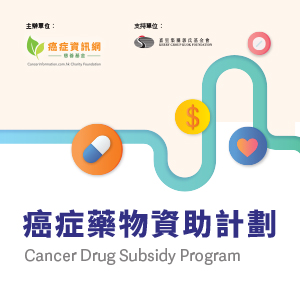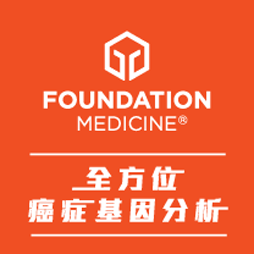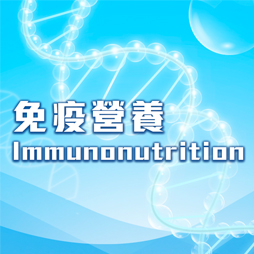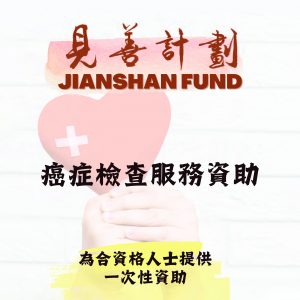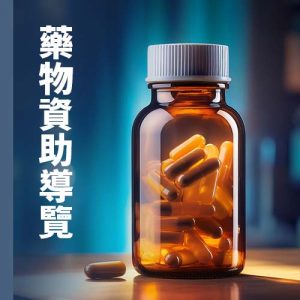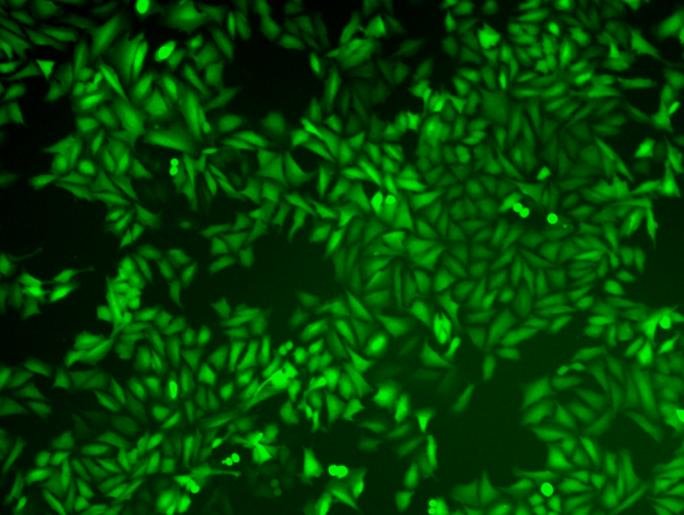文章
醫療新知 >
一種新葯能破壞癌細胞生物鍾 / ScienceDailyCancer has a biological clock and this drug may keep it from ticking
一種新葯能破壞癌細胞生物鍾 / ScienceDailyCancer has a biological clock and this drug may keep it from ticking
城中活動
2026-06-10 10:00 上午
2026 留住這一刻 – 維港帆船體驗計劃
2026-06-07 10:30 上午
慶祝重生,共聚感恩|癌症康復者日特別聚會
2026-04-18 12:30 下午
維多利亞港帆船賽體驗計劃
疑難排解
我們有一群專業的醫護人員及相關朋友,隨時解答大家的疑難,立即提交疑問!
會員註冊
成為會員,可以第一時間接收由病患者和照顧者角度出發的資訊,立即行動!
或許你會想看
新型「標靶放射治療」 治療晚期前列腺癌效果理想 有望成為未來前列腺癌治療主流
(2026 年 2 月 10 日) 近年,世界各地也有不少名人、官員被發現患上與前列腺相關疾病,社會大眾亦開始 […]
養和醫療集團及香港理工大學 簽訂培訓合作協議 支援營養治療理學碩士課程 提供實習機會接通教學與臨床
(2026 年 2 月 2 日-香港)養和醫療集團 (養和) 與香港理工大學(理大)簽訂合作協議,為理大在香港 […]
【跨境醫療】「醫健通」新增三間可授權指定境外醫療機構存入放射檢查報告
由一月二十七日起,香港市民可透過「醫健通」流動應用程式的「個人資料夾」功能,授權指定境外醫療機構,為他們上載放 […]
【乳癌治療日新月異】助你繼續綻放健康美麗 趙頴欣醫生 內腫瘤科專科醫生
乳癌是本港的頭號婦女癌症,近年確診個案更時有增無減。隨著醫學技術進步,癌症治療的選擇愈來愈多,療效也不斷提升及 […]
兒童癌病康復者的長期護理需要
醫療技術進步和癌症治療突破,使兒童癌症的存活率提高。然而,癌症及其治療對兒童的身心健康產生長期不良影響,因此為 […]
【公營醫療】全年收費上限申請
如市民在公營醫療年度費用(每年1月1日至12月31日)超過「全年收費上限」 HKD10000, 謹記通過醫管局 […]
【港大研究】港大醫學院研究證實前列腺癌篩查極具成本效益 有效降低晚期前列腺癌比例及死亡率
港大醫學院研究證實前列腺癌篩查極具成本效益 有效降低晚期前列腺癌比例及死亡率 倡本港廣泛推行 香港大學李嘉誠醫 […]
【港大醫學院】破解胃癌「代謝密碼」 胃癌腫瘤生長減緩達65% 神經元滲透性胃癌配合膽固醇抑制劑 殺死癌細胞效果提高6.3倍
香港大學李嘉誠醫學院(港大醫學院)的研究團隊在胃癌研究上取得突破,揭示人體「第二大腦」——消化系統中的腸神經元 […]
中大臨床研究利用球囊心包切開術治療心包積水 術後復發率大減8成 患者免受重複入院「拮針」引流之苦
每五名癌症患者就有一人出現惡性心包積水,傳統心包穿刺引流術雖可減少心包填塞的風險,惟復發的機會高達60%。香港 […]
香港科大工学院研发AI病理系统SmartPath 提供一站式癌症诊断支援
香港科技大学(科大)成功研发创新人工智能(AI)系统SmartPath,革新癌症病理诊疗全流程。系统由科大计算 […]
【人工智能】BioMap 開展新的聯合研究合作計劃
在剛結束的「第二屆國際生物計算創新峰會」上香港遺傳性乳癌家族資料庫 HK Hereditary Breast […]
【香港乳癌基金會】第12屆周年乳癌科學會議2025 「乳癌年度新發展 – 從研究到臨床應用」 借鏡其他亞洲地區 推動全民乳癌篩查
【香港,2025 年 11 月 9 日】乳癌自1994年起成為本港女性的頭號癌症,每日平均有約15人確診乳癌。 […]






